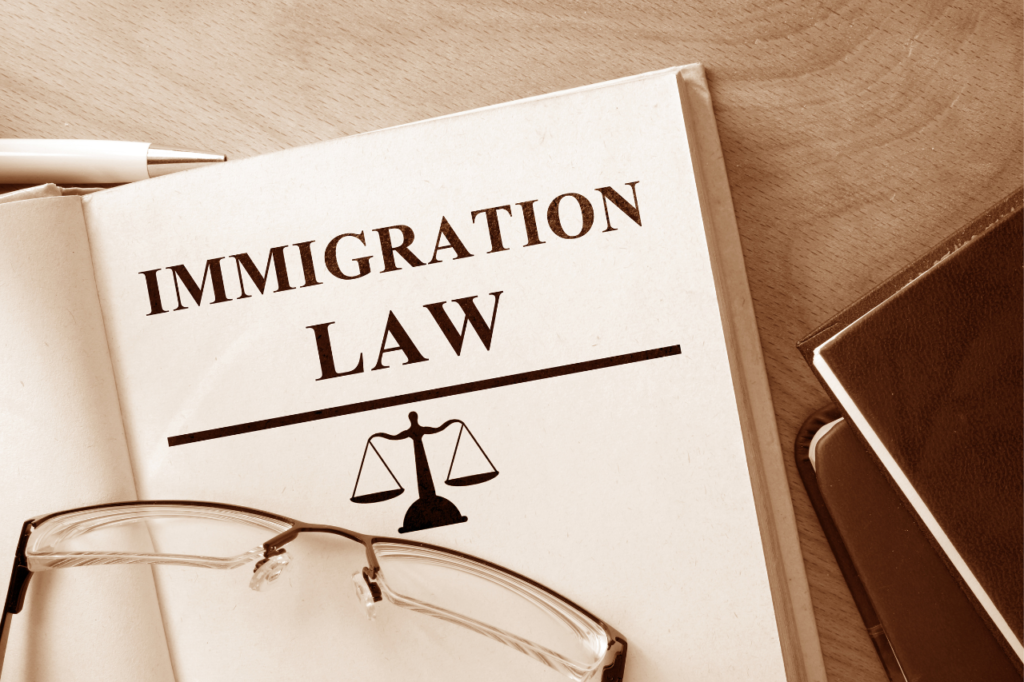In the complicated situation of immigration and social benefits in England, it can be difficult to know what criteria must be met to claim public funds and accommodation. Because you are a non-UK citizen, the status of your immigration will define whether you qualify for the benefits or not. This resource aims to guide you through the top factors that determine whether you are eligible, which will, in turn, enable you to understand the complex nature of this topic.
The requirements of the immigration rules and restrictions on access to public cash and accommodation in England need to be appropriated to obtain a clear understanding of the nuances. If you are a British citizen, a person with settled or indefinite leave to remain, or refugee status, or another immigration category covers your situation, this guide is going to bring you useful information on how you can obtain help.
Understanding Public Funds
What Are Public Funds?
Public finance is a realization of a large amount of expenditures on social benefits and services that are provided by the Government, including tax and financial aid, and free access to social housing. To establish your grounds for investment, the foremost thing you will need to do is to categorize the various immigration statuses that qualify for getting these funds.
Eligibility for Public Funds
British or Irish Citizenship
If you are a British or Irish citizen, you are automatically entitled to claim public funds. This includes various benefits and housing support.
Settled Status from the EU Settlement Scheme
Individuals with settled status obtained through the EU Settlement Scheme also have access to public funds. This can be a valuable resource for financial assistance.
Indefinite Leave (Excluding Adult Dependent Relative Visa)
Having indefinite leave to remain in the UK grants you access to public funds, except for individuals who arrived on an adult-dependent relative visa. We’ll delve into specific exceptions shortly.
Refugee Status or Humanitarian Protection
Refugees and those granted humanitarian protection can claim public funds, providing crucial support during their stay in the UK.
Right of Abode
Individuals with the right of abode are eligible to claim public funds, ensuring access to essential benefits and housing assistance.
Exceptions to Public Fund Eligibility
Adult Dependent Relative Visa
Suppose you arrived in the UK on an adult-dependent relative visa and possess indefinite leave. In that case, some benefits such as Universal Credit, Pension Credit, and Housing Benefit may not be accessible. This is due to specific rules related to the maintenance undertaking signed by your family member.
Pre-Settled Status from the EU Settlement Scheme
While individuals with pre-settled status can claim certain public funds like Personal Independence Payment (PIP) and Disability Living Allowance (DLA), additional rights to reside may be required for other benefits. We’ll explore the rules for benefits eligibility and rights to reside further.
Rights to Reside and Benefits Eligibility
Rights to Reside for Benefits
Access to certain benefits in the UK is contingent on demonstrating that the UK is your primary residence and that you plan to stay here. This status is known as being ‘habitually resident’ in the UK, and it can be more challenging to establish if you’ve recently arrived in the country, unless you were previously living in Ireland, Jersey, Guernsey, or the Isle of Man.
These requirements apply even if you are allowed to claim public funds. However, if you have refugee status or humanitarian protection, you are exempt from meeting these conditions.
Benefits Eligibility Based on Immigration Status
Waiting Periods for Benefits
For some benefits, such as Personal Independence Payment (PIP), you must have been residing in the UK for a specified duration before you can make a claim. Understanding these waiting periods is essential when assessing your eligibility.
Immigration Status and Benefits Access
Your immigration status plays a pivotal role in determining your eligibility for public funds. The following sections outline specific scenarios related to immigration status and access to benefits:
Waiting for a Decision from the EU Settlement Scheme
Individuals awaiting a decision from the EU Settlement Scheme can access public funds if they have a ‘right to reside.’ This right can be established based on various factors, including employment and family circumstances.
Other Immigration Statuses
For individuals with immigration statuses not covered in previous sections, it’s crucial to check your immigration documents. If your documents indicate ‘no public funds’ or ‘no recourse to public funds,’ you may be ineligible for certain benefits. However, if these restrictions do not apply to your immigration status, you can claim public funds.
Visitors and Expired Visas
Visitors to the UK, including those who scanned their passport at an ‘eGate’ and did not receive immigration documents, generally have a ‘no public funds condition.’ Additionally, if your visa has expired and you did not apply for an extension or change of status in time, you may lose access to public funds.
Benefits Included in Public Funds
Understanding which benefits are included in public funds is essential for assessing your eligibility and financial support options. The following benefits are typically part of public funds:
- Universal Credit
- Pension Credit
- Child Benefit
- Personal Independence Payment (PIP)
- Disability Living Allowance (DLA)
- Attendance Allowance
- Carer’s Allowance
- Winter Fuel Payments and Cold Weather Payments
- Funeral Payments
- Sure Start Maternity Grants
Additionally, certain benefits being replaced by Universal Credit, such as tax credits, income-related Employment and Support Allowance (ESA), income-based Jobseeker’s Allowance (JSA), and Income Support, are also considered part of public funds.
Housing Support and Public Funds
Access to social housing and homelessness assistance is also influenced by your immigration status and eligibility for public funds. Understanding the implications of your status is crucial when seeking housing support:
- Applying for council housing or making a homeless application may be restricted if you are not allowed to claim public funds.
- Exceptions apply when your child’s health or development is at risk (under the ‘Children Act’) or if you are disabled and require assistance (under the ‘Care Act’).
- Applying for key worker housing, such as for nurses, does not count as claiming public funds.
Consequences of Incorrect Claims
It’s vital to avoid making erroneous claims for public funds, as these can lead to unfavorable outcomes:
- Your application for public funds may be refused.
- The Home Office may refuse future immigration applications, such as visa extensions or permanent residency requests.
- In rare cases, the Home Office may take legal action or terminate your visa prematurely.
If you suspect you’ve made incorrect claims, it’s advisable to seek advice from an immigration adviser to rectify the situation.
Partner or Child’s Eligibility
When assessing eligibility for public funds, it’s essential to consider the impact on your partner or child, as their circumstances can affect your ability to claim benefits.
Claiming Benefits
While some benefits can be claimed independently of your partner or child’s status, others are more complex. For instance:
- Personal Independence Payment (PIP) and Attendance Allowance can be claimed for yourself, regardless of your partner or child’s eligibility.
- Disability Living Allowance (DLA) for your child may be affected if they are not allowed to claim public funds.
- The rules for benefits like Universal Credit can become intricate if your partner or child’s income affects your eligibility.
- It’s crucial to consult with an adviser before claiming benefits or if you have concerns about prior claims.
Applying for Housing or Homelessness Assistance
When applying for council housing or homeless support, be aware that it may impact your partner or child’s immigration status. Consulting with an adviser is advisable to navigate this process effectively.
Alternative Support Options
If you are ineligible for public funds, there are alternative avenues of support available to you:
- New style Jobseeker’s Allowance (JSA)
- New style Employment and Support Allowance (ESA)
- State Pension
- Bereavement Benefit
- Discretionary Council Tax reductions
- Utilising other public services, such as state schools
Health Services Access
If you have permission to be in the UK, you can access the National Health Service (NHS) without paying, unless you hold a visitor visa or entered the UK as a visitor using an eGate. Detailed rules on NHS access for individuals abroad can be found on the NHS website.
Additional Support for Families and Children
If you have children, consider exploring the following support options:
- Free school meal eligibility for school-aged children
- Healthy Start scheme for children under 4 and pregnant individuals with qualifying income levels
- Support for children at risk of health or development issues
Asylum Seekers
If you’ve applied for asylum, there are specific housing and financial support options available while you await a decision on your application. These support mechanisms can provide essential assistance during a challenging period.
Seeking Removal of the ‘No Public Funds’ Condition
In certain circumstances, you can apply for the removal of the ‘no public funds’ condition. This option is available to those on partner, parent, or British National (Overseas) visas under the following conditions:
- Insufficient funds for sustenance
- Risk to your child’s welfare due to low-income
You can obtain the requisite form and application guidance from the official GOV.UK website. If you require assistance with the application process or are uncertain about eligibility, consider seeking advice from a specialist adviser.
Domestic Abuse and Partner Visas
If you’ve experienced domestic abuse and hold a partner visa, you and your children may be eligible for indefinite leave. This can be pursued under the ‘destitution domestic violence (DDV) concession.’ Specific rules and procedures apply, so it’s essential to familiarise yourself with the requirements.
Financial Considerations for Visa Extensions
If you find yourself in a financial hardship situation while holding a partner or parent visa, it can impact the timing of your visa extension and eligibility for indefinite leave. Understanding the financial requirements associated with the ‘5-year route’ and ’10-year route’ to settlement in the UK is crucial.
Navigating the complex terrain of immigration status, public funds, and housing support in England requires a comprehensive understanding of the rules and regulations. This guide has provided detailed insights into the eligibility criteria for accessing public funds and assistance with housing, ensuring that you can make informed decisions and access the support you need. For personalized guidance or assistance, consider consulting with a specialist adviser.





